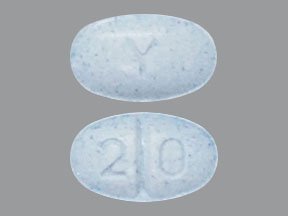
Xanax Coupons & Savings Card – Discount Prices from $4.15
Brand for: Alprazolam
My prescription
Edit
1MG, Alprazolam (60 Tablets)
Select pharmacy

CVS
$19.56
COUPON PRICE
Walmart
$4.15
COUPON PRICE
Walgreens
$10.66
COUPON PRICE
Albertsons
$14.93
COUPON PRICEXanax savings card
Show this card to your pharmacist
Walmart
$4.15
BIN
ID
PCN
GRP
019876
LH82564B68
CHIPPO
LHX
Powered by
Related benzodiazepines prescriptions
More prescriptions for panic disorder
Related benzodiazepines prescriptions
More prescriptions for panic disorder
Price history for Xanax (brand) & Alprazolam (generic)
60 Tablets, 1MG
Average retail price for Xanax
Average retail price for Alprazolam
Average SaveHealth price for Alprazolam
Our price history data is based on aggregated prescription data collected from participating pharmacies in America. Our prescription data updates daily to reflect the latest price changes. If you notice a missing data point, it means there wasn't sufficient data available to generate a monetary value for that date.
Over the last 12 months, the average discount price of Xanax is $7.08 using the SaveHealth savings card. That's an average savings of 99.41% on Xanax with our discount card.
*Retail prices are based on pharmacy claims data, and may not be accurate when we don't have enough claims.
Xanax (Alprazolam) dosage forms
Dosage Quantity Price from Per unit 0.25MG 10 Tablets $2.75 $0.28 0.25MG 30 Tablets $3.24 $0.11 0.25MG 60 Tablets $3.97 $0.07 0.25MG 90 Tablets $11.21 $0.13 0.25MG 120 Tablets $11.94 $0.10 0.5MG 30 Tablets $3.24 $0.11 0.5MG 60 Tablets $3.98 $0.07 0.5MG 90 Tablets $11.21 $0.13 0.5MG 120 Tablets $11.95 $0.10 0.5MG 180 Tablets $19.16 $0.11
| Dosage | Quantity | Price from | Per unit |
|---|---|---|---|
| 0.25MG | 10 Tablets | $2.75 | $0.28 |
| 0.25MG | 30 Tablets | $3.24 | $0.11 |
| 0.25MG | 60 Tablets | $3.97 | $0.07 |
| 0.25MG | 90 Tablets | $11.21 | $0.13 |
| 0.25MG | 120 Tablets | $11.94 | $0.10 |
| 0.5MG | 30 Tablets | $3.24 | $0.11 |
| 0.5MG | 60 Tablets | $3.98 | $0.07 |
| 0.5MG | 90 Tablets | $11.21 | $0.13 |
| 0.5MG | 120 Tablets | $11.95 | $0.10 |
| 0.5MG | 180 Tablets | $19.16 | $0.11 |
| 1MG | 60 Tablets | $4.15 | $0.07 |
| 1MG | 30 Tablets | $3.33 | $0.11 |
| 1MG | 45 Tablets | $3.74 | $0.08 |
| 1MG | 90 Tablets | $11.48 | $0.13 |
| 1MG | 120 Tablets | $12.31 | $0.10 |
| 2MG | 30 Tablets | $4.21 | $0.14 |
| 2MG | 45 Tablets | $5.06 | $0.11 |
| 2MG | 60 Tablets | $5.91 | $0.10 |
| 2MG | 90 Tablets | $14.12 | $0.16 |
| 2MG | 120 Tablets | $15.83 | $0.13 |
What does the drug Xanax do?
Xanax, which contains the active ingredient alprazolam, is a medication primarily used to treat anxiety disorders and panic disorders. It belongs to a class of medications called benzodiazepines, which work by enhancing the effects of a neurotransmitter in the brain called gamma-aminobutyric acid (GABA). This action helps to produce a calming effect, reducing symptoms of anxiety and panic.
Is Xanax for sleep or anxiety?
Xanax (generic name: alprazolam) is primarily prescribed for the treatment of anxiety disorders and panic disorders. It belongs to a class of medications called benzodiazepines, which work by enhancing the effects of a certain natural chemical in the body (GABA) to produce a calming effect. While it is not specifically approved for the treatment of sleep disorders, some doctors may prescribe it off-label for short-term relief of insomnia due to its sedative properties. However, it is important to use Xanax only as directed by your healthcare provider, as it can be habit-forming and has potential side effects. If you have concerns about anxiety or sleep issues, please consult your doctor for a proper evaluation and treatment plan.
Is Xanax a narcotic?
Xanax is not classified as a narcotic. It is a benzodiazepine, which is a class of medications used primarily for treating anxiety and panic disorders. Narcotics typically refer to opioids, which are used for pain relief.
Can I get Xanax for my anxiety?
Only a licensed healthcare provider can determine if Xanax is appropriate for managing anxiety. It is important for the individual to consult with their doctor or psychiatrist, who can evaluate their symptoms and medical history to decide on the best treatment plan.
What not to do while taking Xanax?
When taking Xanax (alprazolam), it's important to follow your healthcare provider's instructions carefully. Here are some key things to avoid:1. Alcohol: Do not consume alcohol while taking Xanax, as it can increase the sedative effects and potentially lead to dangerous side effects.2. Operating Machinery or Driving: Avoid driving or operating heavy machinery until you know how Xanax affects you, as it can cause drowsiness and impair your ability to perform these tasks safely.3. Other CNS Depressants: Avoid taking other central nervous system depressants, such as other benzodiazepines, opioids, or sleep medications, unless specifically directed by your healthcare provider.4. Grapefruit and Grapefruit Juice: These can interact with Xanax and lead to potentially dangerous effects.5. Sudden Discontinuation: Do not stop taking Xanax abruptly without consulting your healthcare provider, as this can lead to withdrawal symptoms. Your provider will guide you on how to taper off the medication safely if needed.6. Overdosing: Do not take more than the prescribed dose. If you feel that your current dose is not effective, consult your healthcare provider rather than adjusting the dose yourself.Always follow your healthcare provider's advice and read the medication guide provided with your prescription for more detailed information. If you have any concerns or experience any unusual symptoms, contact your healthcare provider promptly.
